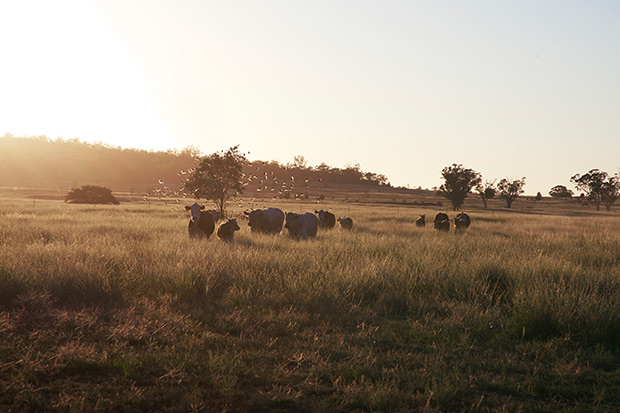
Convention sessions, statement touch on environmental impact of veterinary medicine
One Health—the intersection of human, animal, and ecosystem health—isn't new to the veterinary profession. Veterinary professionals have always practiced One Health as they protect human and animal health, and how they practice and the recommendations they make also impact the health of the ecosystem.

Numerous opportunities exist for veterinarians to act in an environmentally sustainable manner, as well as to learn more about the potential threats and changes from climate change. This idea was reinforced with the AVMA' s recent endorsement of the World Veterinary Association's (WVA) "Position on the Global Climate Change Emergency, a first-of-its-kind veterinary position statement on climate change.
Environmental education
Several continuing education (CE) sessions at AVMA Convention 2023 in Denver focus on topics related to how the veterinary profession can become more environmentally sustainable.
At 11 a.m. MDT on Friday, July 14, Dr. H. Nicole Trenholme, assistant professor of veterinary anesthesia and analgesia at the University of Illinois College of Veterinary Medicine presents, "Anesthetics and Ozone Depletion: How Do We Reduce Our Effects as a Profession?" She reviews some of the implications of anesthesia on global warming and go into options for reduction or elimination of volatile anesthetics in daily practice.
Then at 4 p.m. on Friday, July 14, Dr. William E. Sander, assistant professor for preventive medicine and public health and director of the DVM/Master of Public Health program at Illinois's veterinary college, speaks on "Veterinarians and Pharmaceuticals: Part of the Problem and Part of the Solution." His aim is to provide practicing veterinarians with a greater understanding of the problem of pharmaceutical waste and to give solutions and guidance on how best to handle pharmaceuticals regarding storage, disposal, and risks.
On Saturday, July 15, starting at 2 p.m., is "Infusing Health and Community into Veterinary Practices with Environmentally Sustainable Initiatives." The speakers are Jacquie Hilterman, founder of Dogwood Consulting, which focuses on helping veterinary hospitals to become more environmentally sustainable; Dr. Danielle Scott, a resident veterinarian in preventive medicine at Colorado State University (CSU); Dr. Colleen Duncan, a veterinary professor at CSU; Dr. Terry Ryan Kane, founder A2 Bee Vet, a veterinary practice devoted to honeybee medicine; and Dr. Sander.
Together, they will talk about what veterinary professionals can do now to engage in pro-environmental activities for the protection of animal and human health and demonstrate how sustainability practices positively influence personal wellbeing of employees and activates community outreach and involvement.
Dr. Michele Pfannenstiel, a veteran veterinarian turned business coach and food safety strategist, will give two talks on Saturday, July 15. The first, "Veterinarians, Climate Change, and the Food Supply Chain," happens at 2 p.m. She says veterinarians act at every point in the food supply chain and need to know the ways in which they can help food systems be resilient while maintaining animal health and promoting public health.
Then at 3 p.m. is her presentation, "A Hazard Analysis Approach to Climate-Driven Changes in Food Safety." She talks about how climate change drives emerging risks in the global food supply chain, specifically threatening food and feed safety, plant, and animal health.
On Sunday, July 16 is "From the Birds to the Bees and Everything in Between: How Global Instability Affects Local Food Safety and Security" at 2 p.m. Dr. Riva R. Ben-Ezra is the acting chief veterinarian for the control of food of animal origin in the Israeli Ministry of Agriculture's Veterinary Services.
Dr. Ben-Ezra discusses several significant recent global changes, their effect on local human and animal health, and their subsequent effects on food quantity and safety. Relevant pathogens and mitigation measures are also mentioned to allow stakeholders to incorporate into their surveillance programs and take preventative measures to secure a safe and sufficient food supply.
Finally, at 10 a.m. on Monday, July 17, is the session. "Assessing Animal Welfare within a Sustainability Framework—A New Approach." Lily Edwards-Callaway, PhD, and Sara Place, PhD, are associate professors who focus on livestock behavior, welfare, and systems sustainability at Colorado State. They will talk about how sustainability is an increasingly important topic in food animal production and encompasses economic, social, and environmental domains.
Climate change statement
In related news, the AVMA Board of Directors (BOD) at its June 15 meeting in Washington, D.C., endorsed the World Veterinary Association's (WVA) "Position on the Global Climate Change Emergency" (PDF). The AVMA Committee on Environmental Issues (CEI) submitted the recommendation for AVMA support to the board, which was backed by the Committee on International Affairs (CIVA).
The position statement declares global climate change as an emergency, supports a One-Health approach that calls for collaboration among stakeholders, and encourages continued research into and adoption of modern, efficient, and sustainable food and animal production techniques. It is the only major veterinary position statement on the issue on global climate change.
"Veterinarians, in their role as advocates for animal health and welfare and public health, have a responsibility to protect ecosystem health and demand action to minimize climate change. Globally, veterinarians actively contribute to climate change mitigation and environmental protection in many ways, including, but not limited to, advising on acceptable use of resources (feed, manure and animal by-products) and the appropriate handling of medical waste," the document states, which was published on April 22, 2021.
Other national veterinary organizations, including the Canadian VMA (CVMA), the Federation of Veterinarians of Europe (FVE) and British Veterinary Association (BVA), have since endorsed the position statement.
"The AVMA is the largest member association of WVA, and the CIVA believes that its endorsement of the WVA position statement will help the veterinary community speak with a unified global voice to better advocate for and promote veterinary actions to help mitigate global climate change," according to background materials for the recommendation.